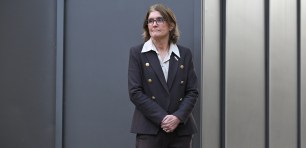
Source: Adobe Stock
A Queensland managing director has been unsuccessful in his bid to claim nearly $50,000 in business travel, accommodation, and food costs as income tax deductions, with a recent ruling by the Administrative Appeals Tribunal (AAT) underlining the importance of keeping receipts for tax time.
In September, the AAT upheld an earlier Australian Taxation Office (ATO) ruling that William Smith, an energy infrastructure expert, could not claim work-related expenses totalling $48,425.86 as part of his 2019-2020 income tax return.
Smith was employed by EnergyAustralia in the relevant income year, while also serving as managing director of Infunde Capital and chief technical director of Infunde Development.
In the course of his employment, Smith travelled extensively between and worked from his Queensland home, Melbourne, and Singapore, where client meetings took place.
On 20 December 2021, the Australian Taxation Office ruled the expenses were not deductable as Smith could not substantiate them with receipts.
Smith sought a review of the decision, arguing spreadsheets cataloguing relevant expenses, bank statements, and calendar notes counted as proof.
Ultimately, Smith was unsuccessful in his attempt to show the ATO’s decision was either excessive or incorrect.
Three tests for work expenses
AAT documents show the tribunal considered the three tests used by the ATO to determine if a work expense counts as an income tax deduction: if it meets substantiation requirements through receipts and additional proof of purchase; if the money is paid without reimbursement; and if the expense is a valid work expense under taxation law.
The appeal fell at the first hurdle, with the AAT finding a mixture of spreadsheet data, bank statements, and calendar notes tendered by Smith did not meet the substantiation threshold.
The Commissioner of Taxation “put to me that the bank and credit card statements are not documents from the supplier of the goods and services, and do not otherwise satisfy the requirements” of a valid business expense, wrote Tribunal Member Lee Benjamin in his decision.
In this matter, “the Commissioner’s submission must be accepted,” Benjamin added.
As a result, Smith is “not entitled to claim the work-related expenses in his tax return”, and could not surmount the onus of proof needed to show the ATO’s original assessment was either excessive or incorrect.
“The substantiation rules are one of the few areas of the Australian income tax law that is easily understandable and well understood by most taxpayers – obtaining and retaining written evidence of work-related expenses, typically in the form a receipt, is a primary requirement for seeking to claim a deduction,” Benjamin added.
“There is little mystery or magic to it.”
Although the case demonstrated that receipts are fundamental to documenting business expenses under Australian tax law, it did highlight one niche area where bank statements can be used as evidence.
In the rare instances a receipt of payment from a supplier does not include a date, taxpayers can tender relevant bank and credit card statements as extra substantiation.
“As is clear from Mr Smith’s evidence, he concedes that his bank and credit card statements do not disclose when the expenditure was incurred,” Benjamin wrote.
“It follows (and I find) that Mr Smith’s bank and credit card statements do not satisfy the requirements”.
SmartCompany has contacted Smith for comment.
Handpicked for you

Super on payday: Government to begin consultation with industry groups



COMMENTS
SmartCompany is committed to hosting lively discussions. Help us keep the conversation useful, interesting and welcoming. We aim to publish comments quickly in the interest of promoting robust conversation, but we’re a small team and we deploy filters to protect against legal risk. Occasionally your comment may be held up while it is being reviewed, but we’re working as fast as we can to keep the conversation rolling.
The SmartCompany comment section is members-only content. Please subscribe to leave a comment.
The SmartCompany comment section is members-only content. Please login to leave a comment.